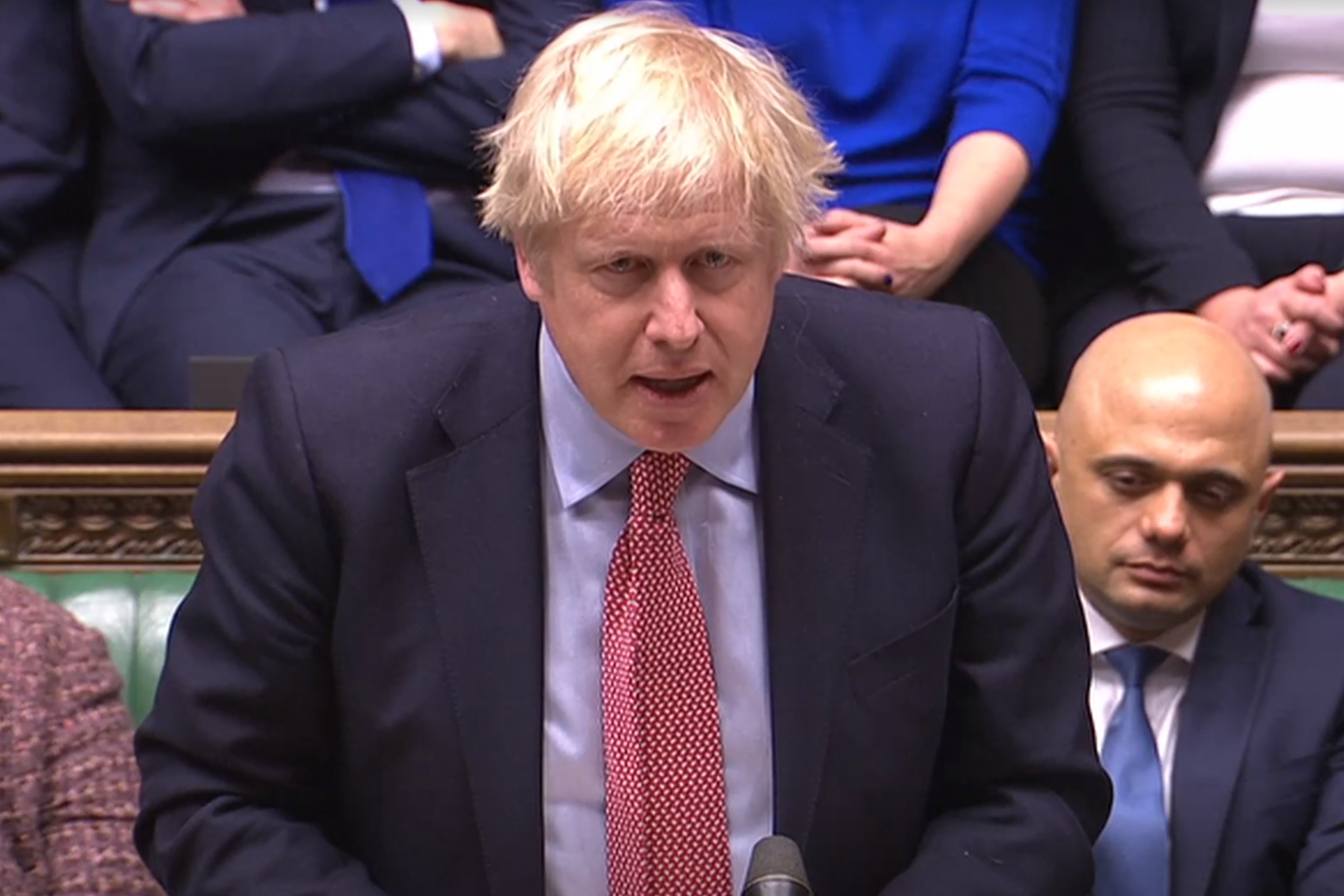Boris Johnson unveils plan to increase number of flights, despite global climate emergency: 'A total disregard for the planet'
New aviation bill promises to squeeze more flights into same airspace and growth for sector

Your support helps us to tell the story
From reproductive rights to climate change to Big Tech, The Independent is on the ground when the story is developing. Whether it's investigating the financials of Elon Musk's pro-Trump PAC or producing our latest documentary, 'The A Word', which shines a light on the American women fighting for reproductive rights, we know how important it is to parse out the facts from the messaging.
At such a critical moment in US history, we need reporters on the ground. Your donation allows us to keep sending journalists to speak to both sides of the story.
The Independent is trusted by Americans across the entire political spectrum. And unlike many other quality news outlets, we choose not to lock Americans out of our reporting and analysis with paywalls. We believe quality journalism should be available to everyone, paid for by those who can afford it.
Your support makes all the difference.New government plans to ramp up the number of flights will make it "all but impossible" for the UK to cut its carbon emissions to the required levels, environmentalists have warned.
Downing Street was accused of "a total disregard for the planet" after it unveiled a new air traffic management bill on Thursday to lift practical limits on the number of planes British airspace can accommodate.
The bill was included in Thursday's Queen's Speech and forms part of the government's legislative programme for the coming years – despite pledges in the Tory manifesto to reach net zero carbon emissions by 2050.
Around 15 per cent of the UK's climate impact come from aviation and environmentalists say that even more flights would be incompatible with the UK's contribution to stopping global disaster.
But the Government says the aviation sector also contributes £22 billion to the UK economy each year and provides over 200,000 jobs, and says its new laws will grow the aviation sector.
Ministers say growth will be "sustainable" and that supposedly outdated practices "limit the number of flights the airspace can safely accommodate".
But campaigners have said the approach will accelerate "climate breakdown" and says that claims aviation be expanded without increased emissions are not realistic.
"At a time when the government should be focussing on drastically cutting the country's carbon emissions, this illustrates the absurdity of the government’s ability to meet its own net zero carbon emission targets, which at 2050 is already too weak. The government has shown a total disregard for the planet," said Alannah Travers, an Extinction Rebellion spokesperson.
Ms Travers added that the government's separate environment bill "barely touches the surface of the action we require our government to take if it is to tackle the climate and ecological crisis".
Jenny Bates, campaigner at Friends of the Earth said: “Aviation is a highly polluting sector, responsible for huge amounts of climate wrecking emissions,"
"You can’t have so-called sustainable growth in a sector like this and stop the climate crisis. And while some may believe developing technologies like electric planes will deliver a green travel future these are nowhere near being a reality.

“The real solution, as part of the fight against climate breakdown, is far fewer planes in our skies. Instead, the opposite is being encouraged with airport expansion projects, including the planned third runway at Heathrow.
"These damaging schemes would make emissions ever higher, making it all but impossible for the UK to meet its targets for cutting emissions.”
Molly Scott Cato, a Green Party MEP, told The Independent: "As the fastest growing source of carbon emissions, the aviation sector must be restricted not expanded.
"This reckless policy of encouraging airport expansion confirms our worst suspicions that the Conservative government is prepared to sacrifice our climate on the altar of profit."
The Air Traffic Management and Unmanned Aircraft Bill, to give it its full name, will also reform the rules for unmanned aircraft and give police more powers to tackle unlawful use of drones.
But the most controversial provisions objected to by environmentalists are a plan to "modernise" Britain's airspace to remove barriers that "limit the number of flights the airspace can safely accommodate".
The Government says the primary purpose of the Bill is to "maintain the UK's position as a world-leader in aviation, ensuring that regulations keep pace with new technology to support sustainable growth in a sector which directly provides 230,000 jobs and contributes at least £22 billion to the UK economy every year".
The year 2019 saw the development of the flygskam or 'flight-shame' movement that discourages people from flying to try and reduce their environmental impact.
But in the UK the winning Conservative party's manifesto appeared to give the green light to Heathrow expansion, describing it as a "private sector project" and saying parliament had in principle backed it. The manifesto policy came despite Boris Johnson's longstanding opposition to expanding the airport.
The Conservatives pledged to take the UK to net zero carbon emissions by 2050, while the losing Labour manifesto pledged to make progress towards the aim by 2030 with a "green new deal".
But scientists have most recently warned that net zero must be reached worldwide well before 2040 to avert serious climate change.
Join our commenting forum
Join thought-provoking conversations, follow other Independent readers and see their replies
Comments